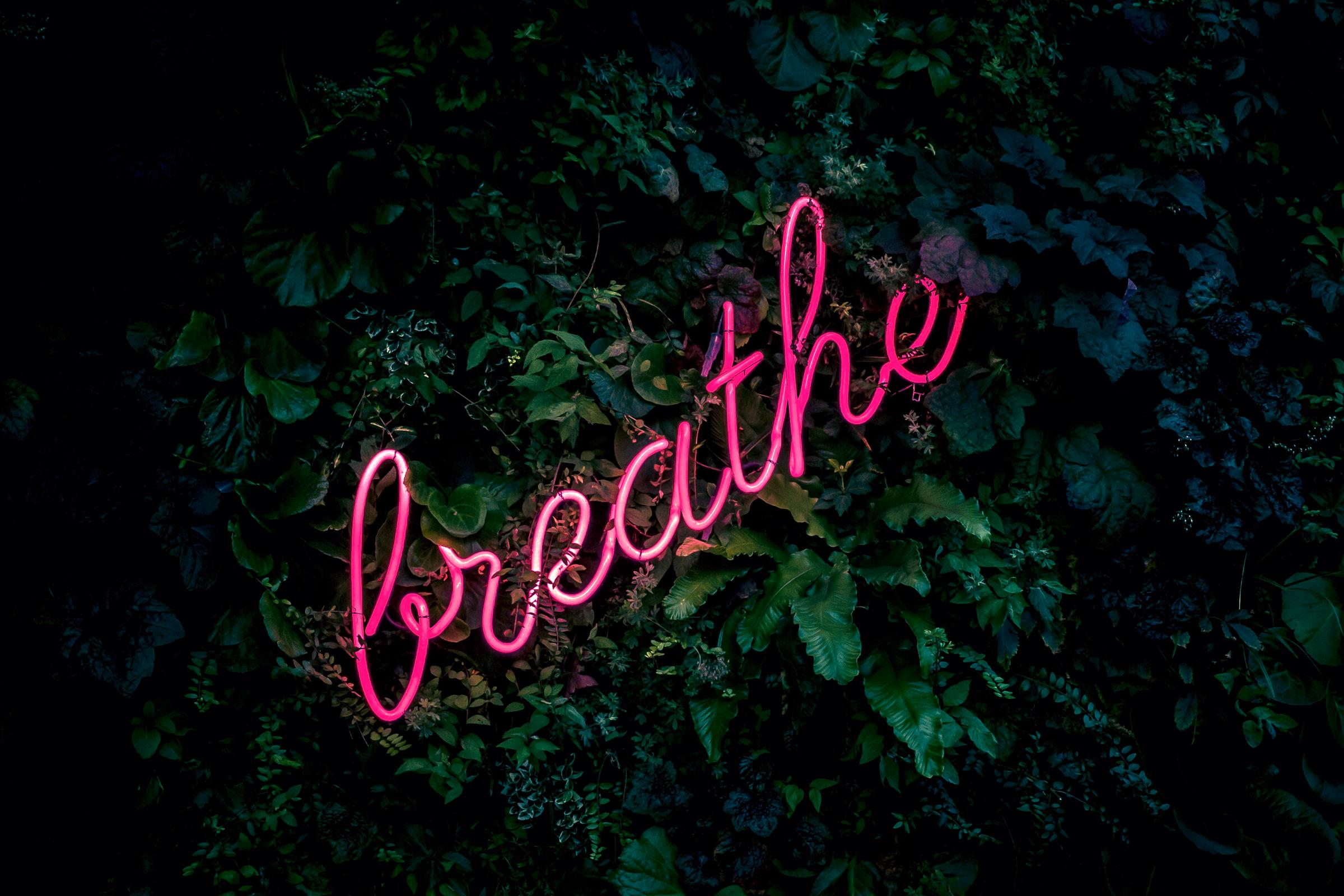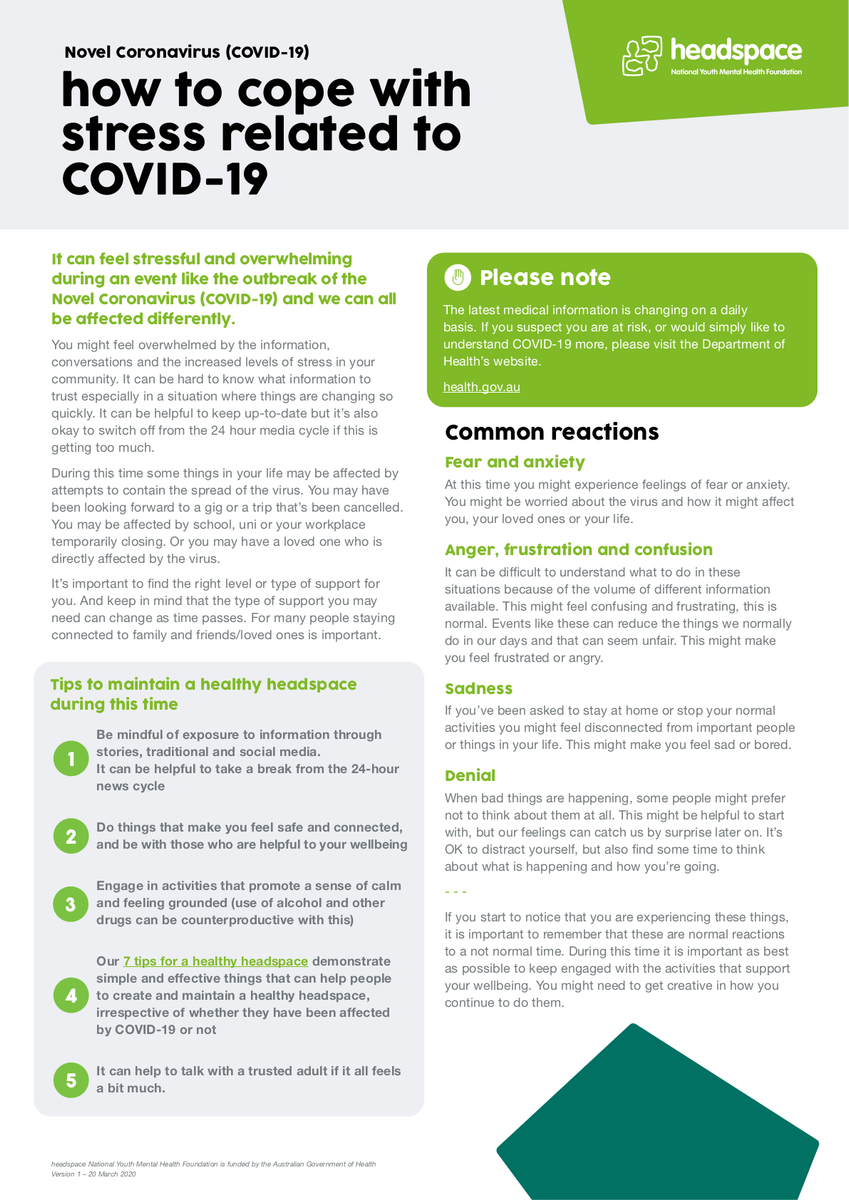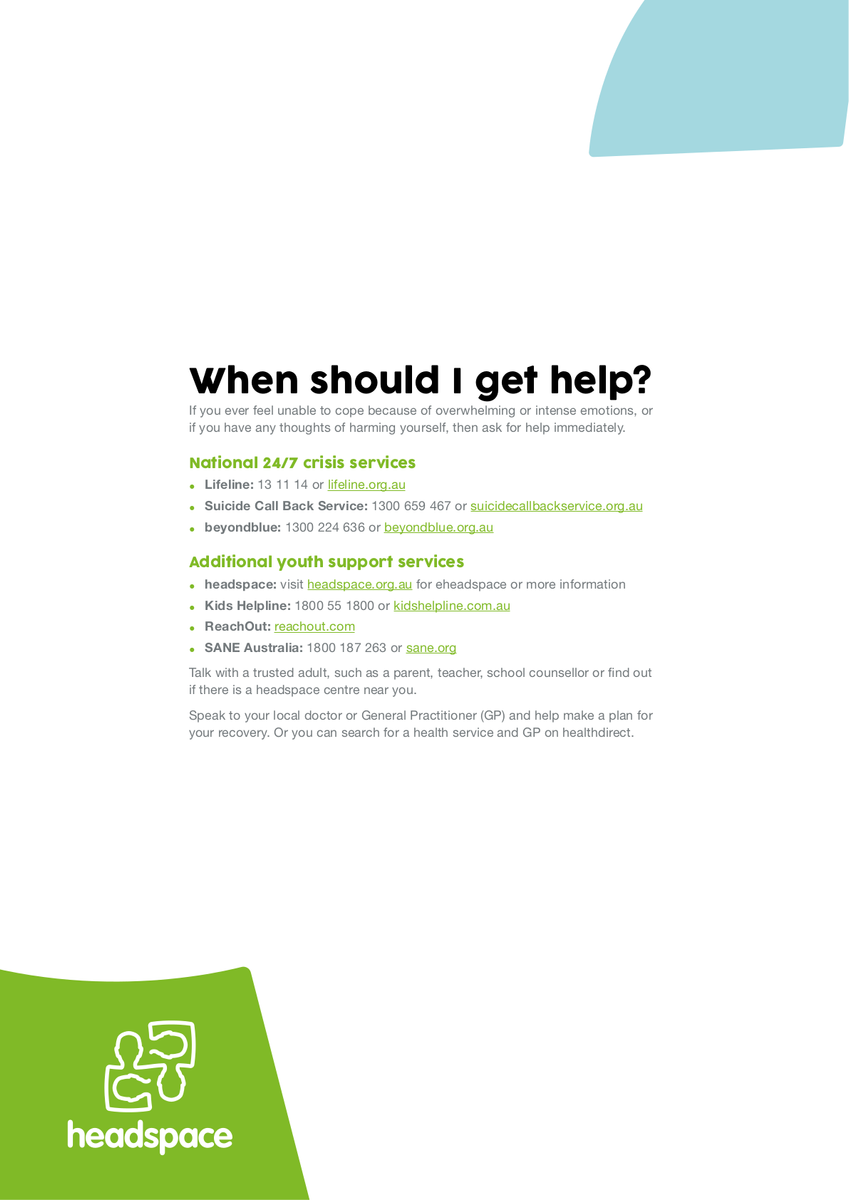Looking after yourself

Tips for good emotional and mental health during this time:
- Maintain routine - keep to a normal sleep cycle, study during school hours and minimise distractions.
- Ensure you take regular, short breaks that involve movement out of you chair – be sure to change your focus and look into the distance e.g. out of a window to counter looking at a school for long periods.
- Ask for help – if you are worried about falling behind or do not understand something, be proactive and ask you teachers (or other trusted adults) for help.
- Take a break from the news - try to limit your media intake to a couple of times a day and use trusted news sources. If you catch yourself turning to social media because you’re feeling isolated, take a break and spend time on another activity.
- Stay active - there are heaps of different types of exercise you can do from home, thanks to YouTube and apps.
- Keep connected- if an in-person meet-up is off the table, try to stay in touch with your mates via text, Messenger, WhatsApp, FaceTime,or phone calls.
- Engage in activities that promote a sense of calm and feeling grounded. Listening to music, meditation, breathing exercises and yoga can be good for reducing anxiety.
Sometimes things can get overwhelming, even if you’ve been practising great self-care. As most people will be socially distancing or self-isolating, Lifeline (13 11 14), Kids Helpline (1800 55 1800), and eheadspace are good options as they offer free online/telephone support and counselling. The Regional Triage SErvice (1300 363 788) is available 24/7 if you are feeling at risk.


